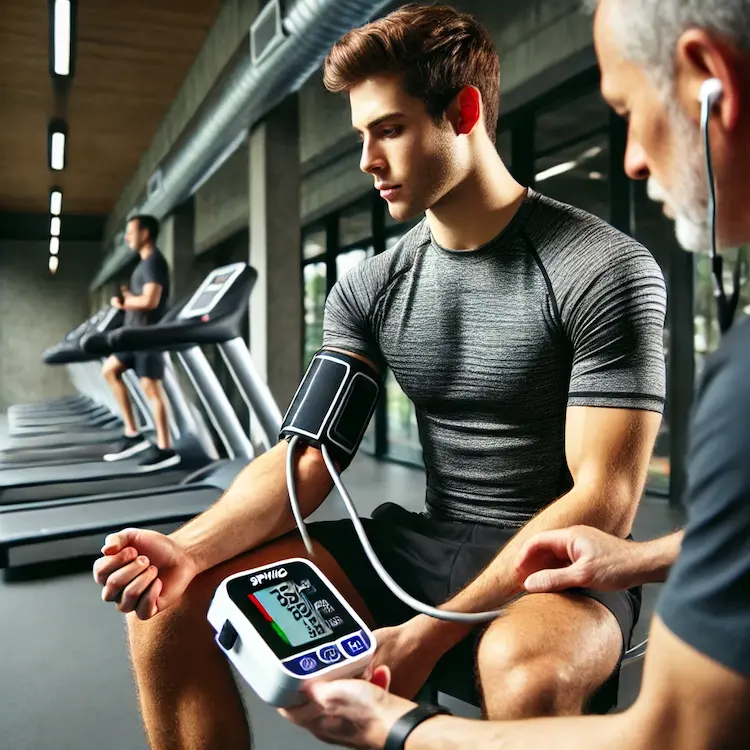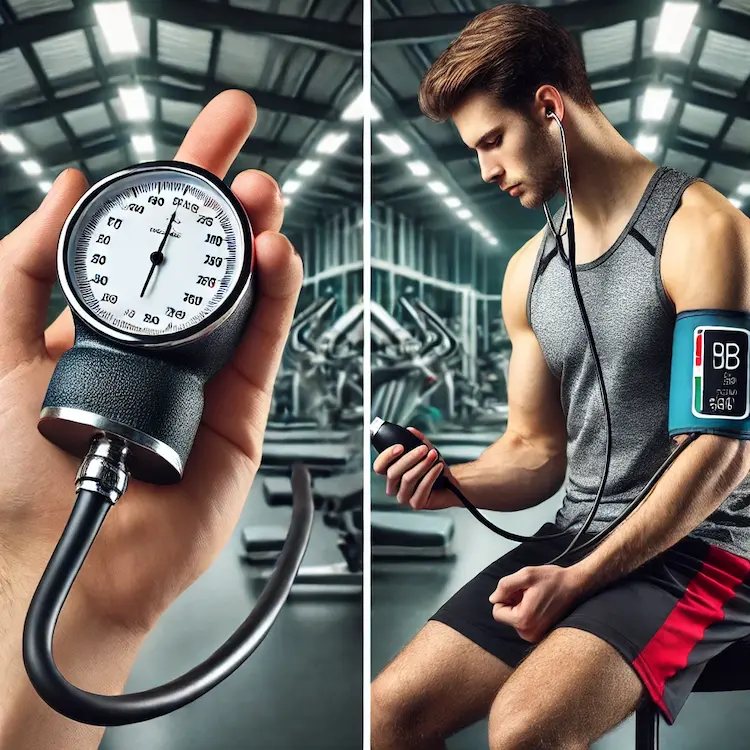Blood pressure monitoring is a crucial aspect of overall health, particularly for athletes who push their bodies to the limits. Sphyg, a leading name in medical equipment for health monitoring, plays a vital role in ensuring athletes maintain optimal blood pressure levels to enhance performance and prevent complications like hypertension, dizziness, and cardiovascular issues.
This article explores the importance of blood pressure monitoring for athletes, its potential health impacts, different measurement methods, and how advanced tools like Sphyg provide accurate readings to improve athletic performance and well-being.
Why Blood Pressure Monitoring Matters for Athletes
Athletes experience extreme fluctuations in blood pressure due to intense training, dehydration, and stress. Understanding these changes can prevent serious conditions like hypertension, hypotension, and heart disease.

Key Benefits of Blood Pressure Monitoring for Athletes
Prevention of Hypertension and Hypotension:
-
- Overtraining and dehydration can cause sudden blood pressure drops, leading to dizziness and fainting.
- Intense exercise can elevate blood pressure, increasing the risk of heart complications.
Optimized Athletic Performance:
-
- Blood pressure monitoring ensures optimal cardiovascular function, leading to better endurance and faster recovery.
- Athletes can track fluctuations and adjust training or diet accordingly.
Early Detection of Heart Abnormalities:
-
- Some athletes are predisposed to hypertension, increasing stroke risk.
- Regular monitoring helps identify any irregularities before they escalate.
Better Recovery and Reduced Fatigue:
-
- Blood pressure readings can indicate overtraining or poor recovery.
- Adjusting intensity based on BP levels prevents burnout and long-term damage.
Methods of Blood Pressure Monitoring
There are multiple ways to monitor blood pressure, each with unique advantages. Below is a comparison of common blood pressure monitoring methods used by athletes:
| Method |
Accuracy |
Convenience |
Best for |
| Oscillometric Monitors (e.g., Sphyg) |
High |
Very Convenient |
Daily BP tracking |
| Mercury Sphygmomanometers |
Gold Standard |
Requires training |
Clinical use |
| Aneroid BP Monitors |
Moderate |
Requires manual skills |
Home & gym use |
| Wearable BP Devices |
Moderate |
High |
Continuous monitoring |
| Smartphone-Based BP Apps |
Low |
High |
General awareness |
Among these, oscillometric monitors like Sphyg provide the most reliable and user-friendly option for athletes who need consistent and precise BP readings without requiring medical expertise.
The Role of Sphyg in Blood Pressure Management
Sphyg is designed to provide highly accurate, clinically tested blood pressure readings, making it an essential tool for athletes. Its advanced technology ensures real-time monitoring, precise measurements, and ease of use.
How Sphyg Benefits Athletes
- Clinically Proven Accuracy: Ensures correct BP readings, minimizing errors.
- User-Friendly Interface: Allows quick and easy monitoring.
- Portable & Durable: Ideal for on-the-go use during training or competitions.
- Advanced Data Storage: Helps athletes track trends and adjust fitness plans accordingly.
- Wireless Connectivity: Syncs with mobile devices for real-time health tracking.
By incorporating Sphyg into their daily routine, athletes can manage blood pressure effectively and reduce health risks associated with intensive workouts.
Health & Societal Impacts of Blood Pressure Monitoring in Sports
Health Impacts
- Reduced Risk of Cardiovascular Diseases: High blood pressure is a leading cause of heart disease; consistent monitoring prevents complications.
- Improved Recovery Rates: Athletes recover faster and more effectively when BP is maintained at optimal levels.
- Enhanced Endurance & Stamina: Balanced blood pressure ensures better oxygen supply, leading to improved athletic output.
Societal Impacts
- Promotes Awareness & Proactive Health Management: Encourages athletes and fitness enthusiasts to monitor BP regularly.
- Encourages Research & Development: Advancements in BP monitoring devices improve sports medicine.
- Supports Healthier Lifestyles: Regular monitoring fosters a health-conscious culture among athletes and the general public.
Practical Tips for Athletes to Monitor Blood Pressure
- Use a Reliable BP Monitor: Devices like Sphyg ensure accuracy and ease of use.
- Measure BP at Consistent Times: Preferably in the morning and post-exercise.
- Stay Hydrated: Dehydration affects BP levels significantly.
- Maintain a Balanced Diet: Sodium intake and electrolyte balance play a key role.
- Monitor Stress Levels: Anxiety and stress can cause blood pressure spikes.
- Adjust Workouts Accordingly: Reduce intensity if BP is consistently high.
- Consult a Sports Cardiologist: Regular check-ups ensure heart health is optimal.

Conclusion
Blood pressure monitoring is crucial for athletes aiming for peak performance and longevity in their sport. Sphyg offers the most accurate and user-friendly solution for tracking BP levels, allowing athletes to prevent potential health risks and optimize their training.
By incorporating consistent BP tracking, healthy lifestyle choices, and the right tools, athletes can ensure better endurance, quicker recovery, and a longer athletic career.
Key Takeaways
- Blood pressure monitoring is essential for preventing hypertension, hypotension, and cardiovascular diseases in athletes.
- Oscillometric monitors like Sphyg offer the best balance of accuracy and convenience.
- Monitoring BP before and after exercise helps adjust training intensity.
- Hydration, diet, and stress management significantly impact BP levels.
- Regular check-ups with a sports cardiologist can prevent long-term health issues.
Actionable Recommendations
- Invest in a high-quality BP monitor like Sphyg for accurate daily readings.
- Monitor blood pressure at least twice a day – once in the morning and once post-exercise.
- Incorporate stress-reducing activities such as yoga and meditation to maintain stable BP.
- Adjust diet and hydration levels to support cardiovascular health.
- Consult a doctor if BP readings show consistent abnormalities to prevent long-term damage.

